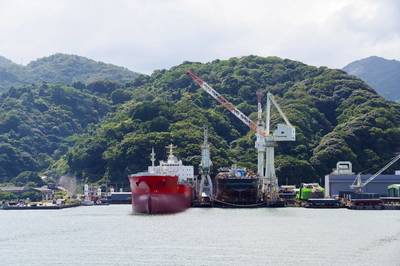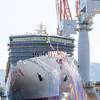ClassNK Amends Class Rules
Classification society ClassNK has released amendments to its Rules and Guidance for the Survey and Construction of Steel Ships.
The 48 amendments were issued on 3June 30, including the following items:
Regarding “Oil-lubricated Propeller Shafts Kind 1”, the notation requirements to affix “1C” to the classification characters of the ships fitted with oil-lubricated propeller shafts (Kind 1C), which have a reputation for being highly reliable by various means not only to prevent corrosion damage to stern tube bearings but also to facilitate general maintenance and management more easily, are stipulated. The amendment also includes the treatment of periodic lubricating oil analysis carried out for the postponement of the Ordinary Survey of a propeller shaft, etc.
Regarding “Characteristics of Governors for Prime Movers Driving Generators”, the methods for confirming characteristics of governors of the gas-fueled engines used as prime movers driving generators are stipulated in response to industry requests for clarification.
Regarding “Watertightness of Cable Penetrations”, the clear and uniform test procedures for confirming and approving the watertightness of the cable penetrations of bulkheads and decks are stipulated.
Regarding “Semiconductor Converters for Power”, the requirements for semiconductor converters for power are amended by compressive review based on the expertise from their application and recent technologies, which includes the addition of type test requirements.
On top of them, the following and more amendments are also made at this time:
“High Voltage Electrical Installations”, “Verification of Accuracy of Flow Meters for Oil Discharge”, “Monitoring and Control Systems”, “Handling of Damage Stability”, “Winches for Free-fall lifeboats”, “Exhaust Gas Recirculation Systems”, “Unified Interpretations for MARPOL ANNEX VI”, “Periodical Surveys of Machinery, Equipment and Fire Safety Systems”, “Welding for Independent Tanks of Ships Carrying Liquefied Gases in Bulk”, “Unified Interpretations for the IGC Code”, and “Heat Treatment for Pipe Weldings”












